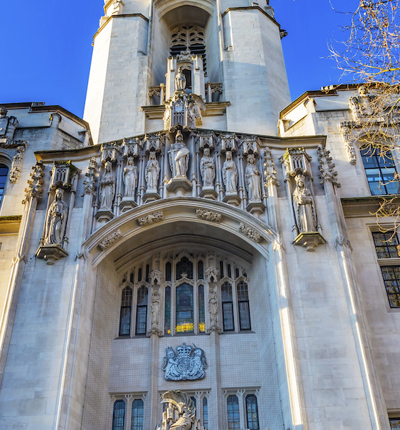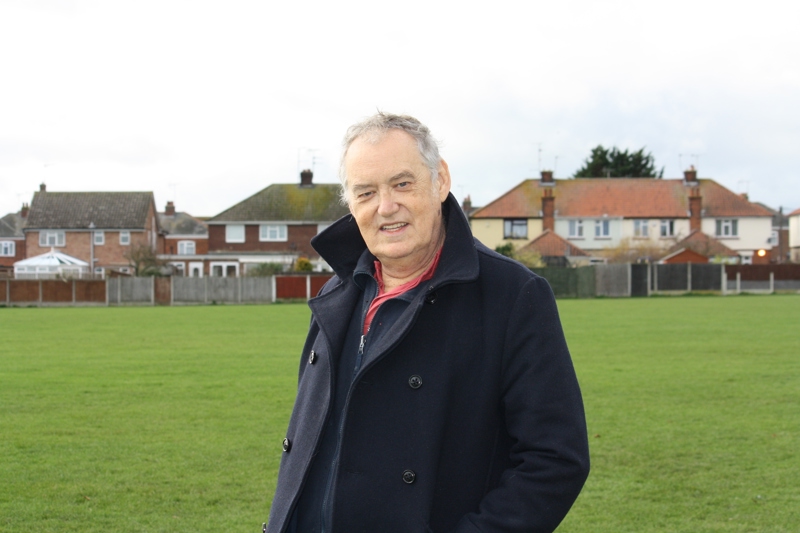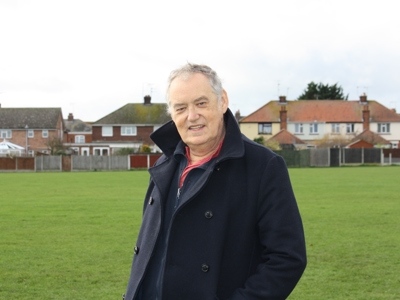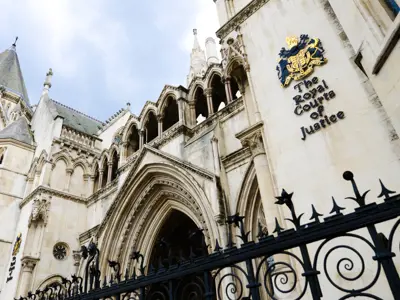
Voter ID legal challenge to be heard by Supreme Court
Campaigner Neil Coughlan’s legal challenge to the piloting of requirement for voters to present identification at polling stations in local elections will be heard by the Supreme Court on Tuesday, 15 February.
Posted on 13 February 2022
Mr Coughlan, aged 69, of Witham, Essex, is fighting a legal case against the Government’s pilot schemes for voter ID rolled out in 10 local authority areas in 2019.
The High Court and Court of Appeal ruled that the schemes were lawful, however Mr Coughlan was given permission to appeal those decisions by the Supreme Court.
Mr Coughlan does not have photographic ID and when he challenged the pilot schemes, one of which was in his area, he said he believed many of his neighbours do not possess the required documents. He has serious concerns that vulnerable and poorer members of his community, who are already less likely to vote in local elections, will struggle to provide identification and are therefore likely to be prevented or deterred from voting. Data from the pilot schemes suggest that if the ID requirement becomes law, 300,000 voters could be excluded from voting.

Neil Coughlan
The case raises issues of fundamental constitutional importance, including because following the pilot schemes the Government introduced the Elections Bill which includes the requirement for voter ID. Labour's Commons bid to remove that section of the Bill was rejected and the Bill is currently being reviewed in the House of Lords. Mr Coughlan, who is crowdfunding his case, says Parliament should be informed by the judgment of the Supreme Court whether the pilot schemes were unlawful, as the pilots form part of the basis for the changes on voter ID proposed in the Bill.
He argues:
- The right to vote in local government elections is a constitutional right and the Court of Appeal was wrong not to rule that it can only be restricted by clear words in a statute. There are no crystal clear words in Section 10 of the Representation of the People Act 2000 which indicate that government ministers can give local government officials the power to turn away voters if they do not have ID
- Section 10 of the 2000 Act does not permit pilot schemes requiring voters to produce ID before they can be allowed to vote
- The pilot schemes requiring voter ID are not in line with the purpose of the 2000 Act to encourage voting and make it easier
Several organisations have been given permission to intervene in the appeal. The case is supported by LGBT Foundation and Stonewall. They say voter identification requirements are especially likely to disadvantage people who are trans and/or non-binary.
The case is also supported by Runnymede Trust, Operation Black Vote and Voice4Change England who point out that access to identity documents has a stark racial dimension. In the pilot schemes, the Electoral Commission found evidence of a disparate racial impact in three of the four areas where demographic analysis was possible.
The Government says voter ID is to prevent voter impersonation in polling stations. However, the evidence suggests that this kind of fraud is rare and in 2017 there were 28 allegations of impersonation out of nearly 45 million votes cast. This reflects one case for every 1.6 million votes cast. Of those 28 allegations, one case resulted in a conviction.
Neil Coughlan said:
“Despite all of the moves to make it a legal requirement to present ID at the polling station, I am still convinced that the change will prevent and deter people from voting and as a result lead to fewer people taking part in the democratic process. I am hopeful that the Supreme Court judges will agree with my legal team’s arguments.”
Leigh Day partner Tessa Gregory, who represents Neil Coughlan, said:
“We look forward to presenting our client’s case in the Supreme Court.
"The case presents an important opportunity for the court to recognise the right to vote in local elections as a constitutional right and to ensure that any restrictions on the right are only imposed by Parliament.”
Mr Coughlan is represented by Tessa Gregory and Carolin Ott of Leigh Day; Tony Peto QC, Natasha Simonsen of Blackstone Chambers, and Sarah Sackman of Matrix Chambers.

Human rights
If you believe your human rights have been denied our human rights and civil liberties team is one of the leading teams of practitioners in this specialist area in the country.

Court of Appeal to hear voter ID pilot scheme legal challenge
Essex man Neil Coughlan is continuing his legal campaign against the Government's pilot schemes to require voter ID at the polling station. His case will be heard by three senior judges at the Court of Appeal on Thursday, April 23 by video link.

Essex man set to appeal High Court ruling that Government's Voter ID pilots are lawful
Neil Coughlan, 64, from Witham in Essex is set to apply to the Court of Appeal following a High Court judgment on 20 March 2019 which held that the Government's plans to pilot a requirement to show ID before being issued a ballot paper in the May 2019 local elections in some areas are lawful.




